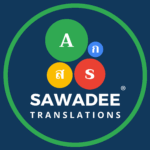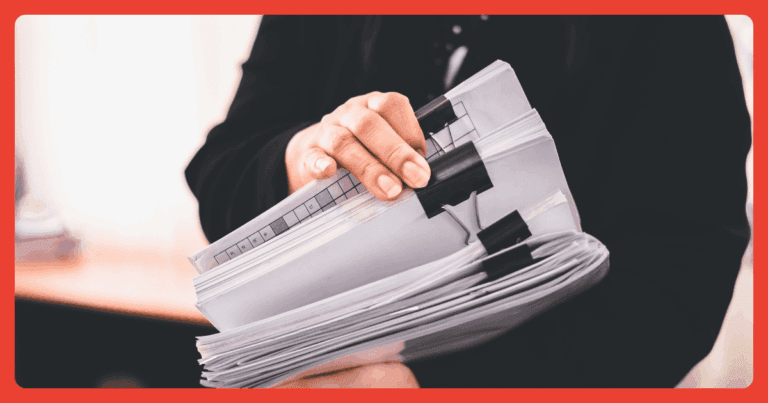
Table of Contents
You need to submit an official document to your embassy in Bangkok. But what about the extra, often confusing step everyone talks about, legalization at the Thai Ministry of Foreign Affairs (MFA)? Is it always required? Which embassies demand it?
For expats, couples marrying in Thailand, students, and professionals, understanding your embassy’s specific requirements is the key to a smooth process. Getting it wrong can lead to rejected applications, wasted time, and significant frustration.
This guide explains the process, which major embassies in Bangkok typically require certified translation and MFA legalization, and why these steps are so important.
The Golden Rule: Understanding the Document Flow
The first step is to understand which direction your document is traveling. There are two main workflows, and the process is different for each.
Flow 1: “INBOUND” — Using a Foreign Document in Thailand
This is when you have a document issued by a foreign entity (like your embassy) and you need a Thai government office to accept it.
Common Scenario: You (a foreigner) are getting married to a Thai national.
- Your Embassy issues an “Affidavit of Freedom to Marry.”
- You get a Certified Translation of the affidavit into Thai.
- You take both documents to the Thai MFA for Legalization. The MFA stamps them, making them official in the eyes of the Thai government.
- You submit the legalized packet to the Thai District Office (Amphur) to register your marriage.
Flow 2: “OUTBOUND” — Using a Thai Document in a Foreign Country
This is when you have a document issued by the Thai government and you need your embassy or home country to accept it.
Common Scenario: You are now married and need to apply for a spousal visa to the UK.
- The Thai District Office issues your Thai Marriage Certificate.
- You get a Certified Translation of the certificate into English.
- You take both documents to the Thai MFA for Legalization. The MFA’s stamp verifies the document is a legitimate Thai government record.
- You submit the legalized packet to the Foreign Embassy (e.g., the UK Embassy) as part of your visa application.
👉 Related reading: Certified vs. Legalized Translations in Thailand

Need Certified or Legalized Translations for MFA or Embassy Use?
Our native translators and legalization team handle everything for you.
Get in Touch >
Which Embassies Commonly Require This Process? (Common Scenarios)
⚠️ Crucial Disclaimer: Embassy requirements can and do change without notice. This list is based on common and long-standing procedures, but you MUST always verify the latest requirements directly on your embassy’s official website before starting any process.
The following major embassies are well-known for requiring the full Translation + MFA Legalization process for key legal documents, especially for the “Inbound” flow.
1. U.S., U.K., Australian & Canadian Embassies
- Most Common Scenario: The Affidavit of Freedom to Marry. These embassies will notarize your affidavit, which you must then have translated into Thai and legalized at the MFA before you can register your marriage at a District Office.
- Other Documents: They may also require this process for documents used in property transactions or certain visa applications for your Thai spouse.
👉 Related reading: Marriage in Thailand for Foreigners: Embassy & Legal Requirements
2. German, French & Other EU Embassies (e.g., Netherlands, Italy, Spain)
- Most Common Scenarios: These embassies are known for being very strict and often require the full process for a wide range of documents related to marriage, family reunion visas, and registering the birth of a child born in Thailand.
- Details: They will require Thai birth or marriage certificates to be translated into their respective languages and legalized at the MFA before they will accept them for official registration or visa processing (“Outbound” flow).
3. Japanese, Chinese & Indian Embassies
- Most Common Scenarios: In addition to personal civil documents (marriage, birth), these embassies frequently require the Translation + MFA Legalization process for business, legal, and academic documents.
- Examples: Powers of Attorney, business contracts, police clearance certificates, and university diplomas often need to be legalized at the MFA before being submitted for embassy-related procedures.
Your Action Plan: The Step-by-Step Process
Regardless of the embassy, the core process for legal documents generally follows one of the two flows.
- Step 1: Get the Source Document. Obtain the original document from either your embassy (for Inbound flow) or a Thai government office (for Outbound flow).
- Step 2: Get a Certified Translation. Have the document professionally translated into the target language (Thai for Thai offices, English/other for embassies).
- Step 3: Legalize at the MFA. Take the original document and its certified translation to the MFA in Bangkok for the official legalization stamp.
- Step 4: Submit to the Final Authority. Present the complete, legalized packet to the intended recipient (the Thai District Office or your Foreign Embassy).
👉 Full guide: How to Submit Documents at the MFA in Bangkok
Common Mistakes to Avoid
- Skipping the MFA Step: Trying to submit an embassy affidavit directly to a District Office without the MFA stamp will result in immediate rejection.
- Using an Unofficial Translator: An embassy will reject a translation that isn’t properly certified with a stamp and signature from a recognized professional.
- Assuming the Process is Fast: The full chain (embassy appointment + translation + MFA processing) can easily take 5-7 business days. Plan ahead and don’t leave it to the last minute.
📌 Related: Top 10 Documents That Require Certified Translation in Thailand
Frequently Asked Questions (FAQs)
Does the embassy legalize the document, or does the MFA?
This is a key point. Your embassy first notarizes or authenticates a document (verifying your signature or its origin). The Thai MFA then legalizes your embassy’s stamp, confirming it’s genuine. They are two different, sequential steps in the chain.
What language should the translation be in?
It depends entirely on who will receive the final document. If the document is for a Thai government office (like Immigration or an Amphur), the translation must be in Thai. If it is for an English-speaking embassy (like the US or UK), the translation must be in English.
Do ALL documents for an embassy need this process?
No. The full MFA legalization process is typically reserved for high-stakes legal and civil documents. For simple supporting documents, a standard certified translation may be sufficient. The golden rule is to always check your embassy’s specific checklist for the service you require.
Conclusion
Navigating multi-step bureaucratic processes is a standard part of expat life. While not every embassy requires MFA legalization for every single document, the major Western and Asian embassies almost always require it for the most important life events like marriage, visas, and legal affairs.
By understanding the “document flow” and verifying the specific requirements with your embassy in advance, you can save yourself from costly and frustrating delays.

Need Certified or Legalized Translations for MFA or Embassy Use?
Our native translators and legalization team handle everything for you.
Get in Touch >
Share this post:
This post was last updated October 2025.







